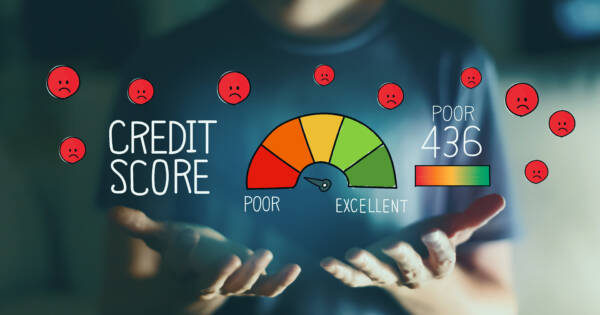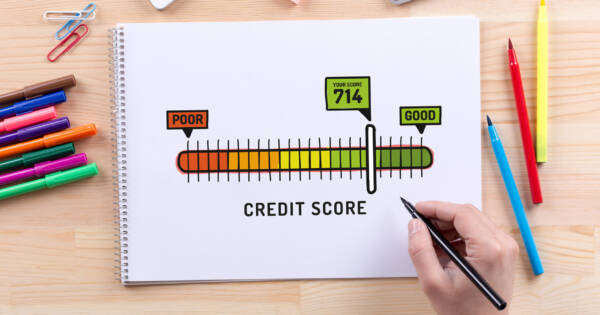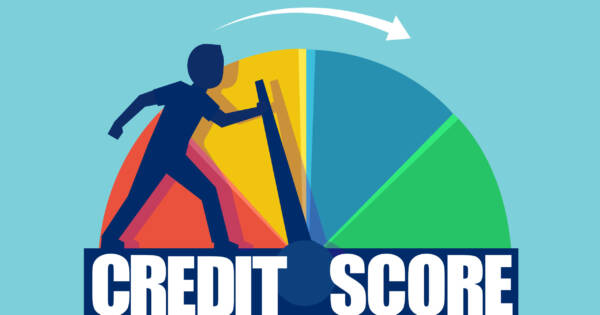Credit scores influence far more of daily life than many people realize, shaping everything from loan approval and interest rates to housing applications and even certain job opportunities. By condensing financial behavior into a single number, credit scores help lenders assess risk, yet the system affects consumers in ways that extend well beyond borrowing costs. Understanding how credit scoring developed, who built the system, and why it functions as it does offers valuable insight into its impact—and its limitations.
What is a Credit Score?
Boiled down to the simplest answer, a credit score is a three-digit number between 300 and 850. The lower the number, the worse your credit is. Generally, any score below 580 is considered poor. Scores between 580 and 740 are determined to be fair or good. Scores above 740 are marked as very good, and anything above 800 is excellent.
These numbers are an easy way to rank your creditworthiness. In short, lenders will use this number to determine whether letting you borrow money is a good risk or a bad risk. Basically, it’s an educated guess on how likely you are to stop making payments on time or default on the debt entirely.
Credit Score vs. Credit Report
While your credit score is just a number, your credit report is much more detailed. It contains all the raw data that is used to make up your credit score. That data includes your historic credit use, including old loans or credit cards that were paid off and closed. It can also include your mortgage details and other public records.
Your credit report will also contain any red flags that you might have picked up. That includes late payments or debts that went into collections. You will also see a list of times that someone made a credit inquiry on you. Credit inquiries are standard practice for many things, including applying for a loan, mortgage, or credit card. Landlords and some employers will also check your credit before accepting you as a tenet or employee.
Who Determines Your Credit Score
The United States has three main credit bureaus (although there are more smaller ones too). They are, in no particular order, TransUnion, Experian, and Equifax. All three are private companies who use the information in your credit report to calculate your FICO score. (FICO stands for Fair Isaac Corporation, a company that helped pioneer the very concept of a credit score.)
Your FICO credit scores from each of the three major credit bureaus may differ slightly, since each company uses a slightly different formula to determine your score. However, they aren’t likely to be different enough to make a major difference. The exception would be if you have a specific creditor who, for whatever reason, doesn’t report to one (or more) of these bureaus.
How Credit Scores Are Calculated
Although each credit bureau calculates your score in a slightly different way, there are some general percentages you should know. Your payment history (both on-time and late payments) make up 35% of your score. If you routinely make late payments, your score will suffer as a result. On the other hand, a pristine history of timely payments will help your score a lot.
Another 30% of your score is how much you owe on loans, lines of credit, or credit cards. This is sometimes referred to as credit utilization. If you constantly max out your credit cards, your score will go down.
Smaller pieces of your credit score include length of credit history (15%), the variety of types of credit you have (10%), and recent credit activity (10%).
Even within those parameters, there are a lot of variables. Still, the two largest things you can do to take care of your credit score are not going into more debt than you can handle and paying every bill (including at least minimum payments to credit cards or lines of credit) on time.
Who Created Credit Scores?
The history of credit scores is a bit murky. Technically, the FICO score used today wasn’t really refined and put into place until 1989. However, the Fair Isaac Company (and its score) dates back to the 1950s. Over the years, different factors were added to the formula, including most recently in 2014 when rent payments were added and medical debt was given a lower weighting.
Before Fair Isaac, the concept of good and bad credit still existed. As early as 1912, retailers kept their own records on which of their customers were more likely to pay back a debt. Soon, they started to share their opinions with each other, creating the first informal database of credit ratings. However, as we’ll explore more in a minute, these ratings were often extremely subjective or downright discriminatory.
Are Credit Scores Bias or Discriminatory?
Credit scores are not allowed to factor in personal characteristics such as race, gender, or political affiliation, relying instead on financial behaviors like payment history and credit utilization. However, research shows that credit scoring systems can still produce unequal outcomes. Structural factors—such as historic lending discrimination, income disparities, and uneven access to traditional banking—contribute to lower average credit scores among Black and Latino consumers, as well as higher rates of credit invisibility.
Because credit scores influence access to loans, rental housing, insurance rates, and sometimes employment screenings, consumer advocates argue that the system can reinforce existing economic inequalities. Lower scores often lead to higher borrowing costs or limited financial opportunities, making it harder for disadvantaged groups to build wealth. While the scoring models themselves are not designed to discriminate, their reliance on financial data shaped by historical inequities can result in disparate real-world impacts.
Fixing the Bias
To their credit, the government has stepped in throughout history to attempt to make credit scores more fair. In 1970, they enacted the Fair Credit Reporting Act. This legislation bans the credit bureaus from including personal identifying details in their reports. It also created more transparency for consumers to see and challenge details of their own credit reports.
The Fair Credit Act requires that debts be expunged from credit reports after a certain number of years. You may have heard that declaring bankruptcy only lasts seven years. This is where that comes from.
Unfortunately, your credit score isn’t the single biggest factor in determining whether you’ll qualify for a loan, credit card, mortgage, job, or new apartment. Experts suggest that your score is only part of those decisions. The rest will be based on other factors, like your income, employment history, as well as savings and assets. And if you have to apply in-person, you may even be subconsciously judged on your appearance or accent. (Not that any banker would ever openly admit that, though).
The Future of Credit Scores
Credit scores aren’t going anywhere. They are consulted by almost every company or institution that you might need to request credit from. The good news, though, is that some companies are starting to lower how important credit scores are. Rather than being outright denied for a loan because of a low credit score, more consumers are now given the chance to explain the context of their low scores. If the reasons are valid, you may still qualify for the credit.
Lenders have also developed their own rating systems. These calculations are proprietary, so you may never know exactly why one bank denied your application but another one approved it. Credit scores will probably continue to evolve and remain an important aspect of your financial life. However, things are shifting towards them not being the gold standard factor.
How to Get Your Own Credit Score (and Report)
Getting your own copy of your credit score is easy enough. You’re legally entitled to one copy per year from each of the three major credit bureaus. You may also get additional credit report access through your credit card or bank account, so it’s worth looking into. Simply visit AnnualCreditReport.com.
If you see a mistake or have a dispute, each bureau has a way to contact them to address it. You may also be entitled to extra credit reports if you’re denied credit for any reason. Remember that asking for a copy of your own credit report will NOT lower your score in any way. This is a popular myth. While multiple creditors checking your score in a short period of time may cause it to lower, there is no penalty for looking at it yourself.
The Bottom Line
Credit scores can be infuriating. It can take months (or years) to build up a good score, only to see that progress wiped out in a flash with one bad decision or stroke of bad luck. Nevertheless, your credit score is an important piece of your financial identity. If you ever want to buy a car, apply for a credit card, get a student loan, or seek out a mortgage, your credit score matters.
While credit scores have historically (and justifiably) been criticized for being discriminatory, things are improving. Not only are credit scores now devoid of any identifying details, some lenders are not giving them the same importance as they used to. Regardless, you should still pay close attention to your credit score. Make sure you review your report annually to ensure it’s accurate and complete. Otherwise, you could be in for an unpleasant surprise the next time you need to seek credit.








